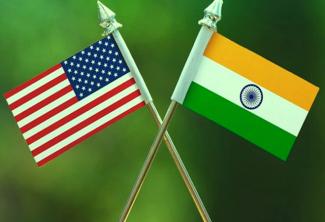Indo-US Nuclear Deal: Who is buying time?
As India and the US started technical talks early this month over a formal bilateral nuclear cooperation agreement, the focus has once again shifted to the difficulties both countries are facing in coming to a consensus. While India and the US are facing severe criticisms over the high-profile agreement, the situation is more complex on the US side. Though this is not surprising in the light of the US conceding ‘too’ much and India not losing ‘anything’, the clock is ticking for the passage of the deal in the US Congress.
Looking at the growing opposition to the deal, the US administration is exerting more pressure on its Indian counterpart and is insisting on adding one more clause, pertaining to Section 123 of the US Atomic Energy Act into the agreement, requiring a cap on future nuclear tests by India, which New Delhi feels should be voluntary and not imposed. The three-day negotiation in Delhi was primarily focused on this particular clause. The New Delhi talk has not produced any tangible result. Though both sides have expressed “good progress” on the modalities of the deal, yet another meeting to be held “fairly soon” merely implies that the task is not yet finished. If both sides do not come to a mutually agreed position fairly soon on the draft agreement, then it will delay the whole process, maybe until the 110th Congress assumes power in 2007. Thus, who is buying time for the execution of the much-talked-about nuclear agreement?
Under the agreement between the US President and Prime Minister of India inked during the former's visit to India in March, India will have access to nuclear fuel and related sensitive technologies from the US and other members of the Nuclear Suppliers Group (NSG). But, the US has to amend its decades-long nuclear legislation to allow space for implementing Indo-US nuclear cooperation. In return, the agreement calls on New Delhi to separate its civil nuclear program under International Atomic Energy safeguards; and to adhere to the Missile Technology Control Regime (MTCR) and NSG guidelines.
For the deal to become effective, both governments have to pass it in their respective legislatures. Though the Indian Parliament has a few problems (political) in accepting the deal in its current form, the fear factor comes from the US side. Despite sharp criticism of the deal by the US intellectual community, it is believed that the majority of members across party lines of the US Congress more or less agreed to the passage of the bill.
However, all the optimism regarding the smooth sailing for the bill now appears to have been run into rough weather as some leading Democrats have recently upped their ante against the agreement. It is worthwhile to mention that this is an election year in the US and the opposition group, i.e., the Democrats, traditionally the supporter of India, is not in a mood to hand an easy foreign policy coup so close to November Congressional elections. Rather they are trying to put conditions, demanding that Congress should withhold its green signal until India finalises its agreement with the International Atomic Energy Agency (IAEA) on the safeguards arrangement, stops fissile material production and assures that it will not carry out any further nuclear testing.
What is more surprising is that some of the leading Republicans have also voiced their oft-repeated non-proliferation concerns following the deal. Leading them is the 2008 presidential hopeful and influential Republican from Arizona, John McCain. In a recent interview with The Financial Times, he demanded “more hear, more argument in favour” of the deal. While the timing of the passage of the deal is of paramount importance for both Indian and US administrations, McCain’s time-consuming demands may stretch it beyond this year.
Meanwhile, the 50-member Committee on International Relations on 28 June voted 37 to 5 to support the legislation designed to make exemptions in the 1954 Atomic Energy Act to enable the US to sell nuclear fuel and technology in return for non-proliferation and safeguard commitments from New Delhi. Now the Foreign Relations Committee of the US Senate is going to vote on the “Lugar-Biden bill” that focuses on exempting exports of nuclear material to India.
It seems the month of July holds the key to the safe passage of the deal when the full House will debate and vote for approving the bill on Indo-US nuclear cooperation. If both the administrations of India and the US do not tie the loose ends quickly, they may run the risk of putting the deal to wider criticism. On the multilateral front, some of the NSG members are already putting the India-specific waiver hostage to the passage of the deal in the US Congress. So, any delay on the US side means little progress in the multilateral front. McCain has already indicated in his interview that it is very unlikely to pass the bill in the present Congress session. If both the sides do not conclude quickly on the modalities of the draft agreement and simultaneously, the US administration does not act quickly before Congress is off for summer recess, McCain’s statement would be prophetic.
